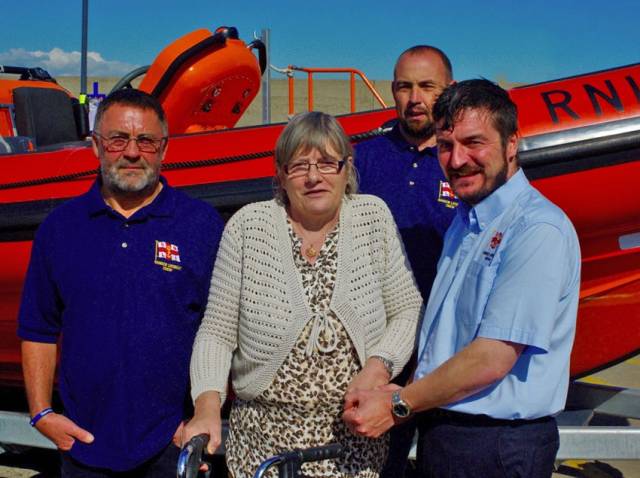#RNLI - Geraldine Donnelly paid a visit to Bangor RNLI earlier today (Thursday 25 August) just weeks after her rescue following a serious fall on Ballyholme beach.
On 7 June last, Donnelly fell more than two metres onto rocks and shingle from Ballyholme Esplanade after one of her two dogs pulled its leash and over-balanced her, as previously reported on Afloat.ie.
After five weeks in the Ulster Hospital and another four receiving physiotherapy, Donnelly is now back on her feet, although full recovery could be a year away.
Today she met three of the lifeboat crew involved in her rescue – helm Mickey McKenna, John Bell and Richard McClinton. A fourth crew member, Ian Browne, sent his regards as he is currently working overseas.
"As soon as I fell, I knew it was serious, and if it wasn’t for the RNLI, I really don’t think I’d be alive today," she said today as she praised the Bangor RNLI crew for their actions, in particular "her angel" John Bell, who held her hand throughout her ordeal.
"Every day since the accident, I’ve wanted to thank you for your kind words and for holding my hand," she said. "It made such a difference, and kept me calm; something the doctors say prevented the injury being even worse."































































